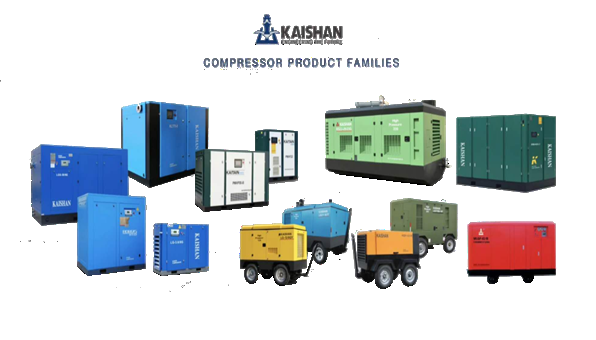When it comes to choosing the right type of compressor for industrial applications, the debate between twin screw and single screw compressors is a common one. Both of these screw compressor types are widely used in various industries, from refrigeration to air conditioning, but they each have their unique features and advantages. In this article, we’ll explore the differences between twin screw and single screw compressors, comparing their performance, efficiency, and suitability for various applications.
Understanding the Basics
A screw compressor works by using two interlocking helical screws (rotors) to compress gas or air. The most commonly used types are the single screw and twin screw compressors. As the names suggest, the main difference between the two lies in the number of rotors used to carry out the compression process.
Single Screw Compressors:
Single screw compressors feature one helical rotor and a set of rollers that mesh with the rotor to create the compression. These compressors typically operate at higher speeds and are often used in low- to medium-pressure applications. Single screw compressors are more compact and often easier to maintain, but they tend to be less efficient compared to their twin screw counterparts.
Twin Screw Compressors:
Twin screw compressors, on the other hand, use two interlocking rotors to compress air or gas. These compressors offer superior performance and are generally more energy-efficient than single screw compressors. They are often used in high-demand applications where efficiency and reliability are key factors. Twin screw compressors tend to be more complex in design, but their overall performance and energy savings make them a popular choice for many industries.
Key Differences Between Twin Screw and Single Screw Compressors
1. Efficiency:
Twin screw compressors are typically more efficient than single screw compressors, particularly in higher pressure applications. They achieve better performance due to their dual-rotor design, which provides more stable and consistent compression. As a result, twin screw compressors are often chosen in industries where energy consumption and operational costs are critical factors.
2. Maintenance:
In terms of maintenance, single screw compressors have an edge. They are simpler in design, making them easier and cheaper to maintain. Twin screw compressors, while offering better performance, tend to be more complex and may require more frequent maintenance, which can lead to higher operating costs over time.
3. Capacity and Size:
When it comes to capacity, twin screw compressors typically handle larger volumes of air or gas. This makes them more suitable for large-scale industrial applications where high capacity and continuous operation are required. Single screw compressors, with their simpler design, are usually smaller in size and are more appropriate for smaller, less demanding applications.
4. Noise and Vibration:
Twin screw compressors tend to produce less noise and vibration compared to single screw compressors. The interlocking rotors in twin screw compressors create a smoother and more balanced operation, resulting in quieter performance. Single screw compressors, with their roller design, can produce more noise and vibration during operation.
5. Cost:
One of the significant disadvantages of twin screw compressors is their higher upfront cost. The complex design and enhanced performance come at a premium, making them more expensive to purchase initially. In contrast, single screw compressors are generally less costly due to their simpler construction. However, the long-term energy savings from a twin screw compressor can offset the higher initial cost over time.
Applications of Twin Screw vs. Single Screw Compressors
Both twin screw and single screw compressors have their place in industrial applications, depending on the specific needs of the operation.
- Single Screw Compressors are often used in applications where cost and simplicity are more important than high performance. They are commonly found in smaller systems, such as small air-conditioning units, small refrigeration systems, and low-pressure air systems.
- Twin Screw Compressors are used in high-performance settings where efficiency, reliability, and capacity are critical. These compressors are found in larger applications such as industrial refrigeration systems, large air compressors, and marine applications, where consistent performance under heavy loads is a must.
Choosing between a twin screw and a single screw compressor ultimately depends on the specific needs of your application. If you require high efficiency, better performance, and a more reliable machine for large-scale operations, a twin screw compressor is likely the better choice. However, if your application is smaller, budget-conscious, and requires simpler maintenance, a single screw compressor could be more suitable.
In the end, both types of compressors have their strengths and weaknesses, and understanding the specific requirements of your system will help guide you toward the best choice for your needs.
Post time: Sep-18-2025




